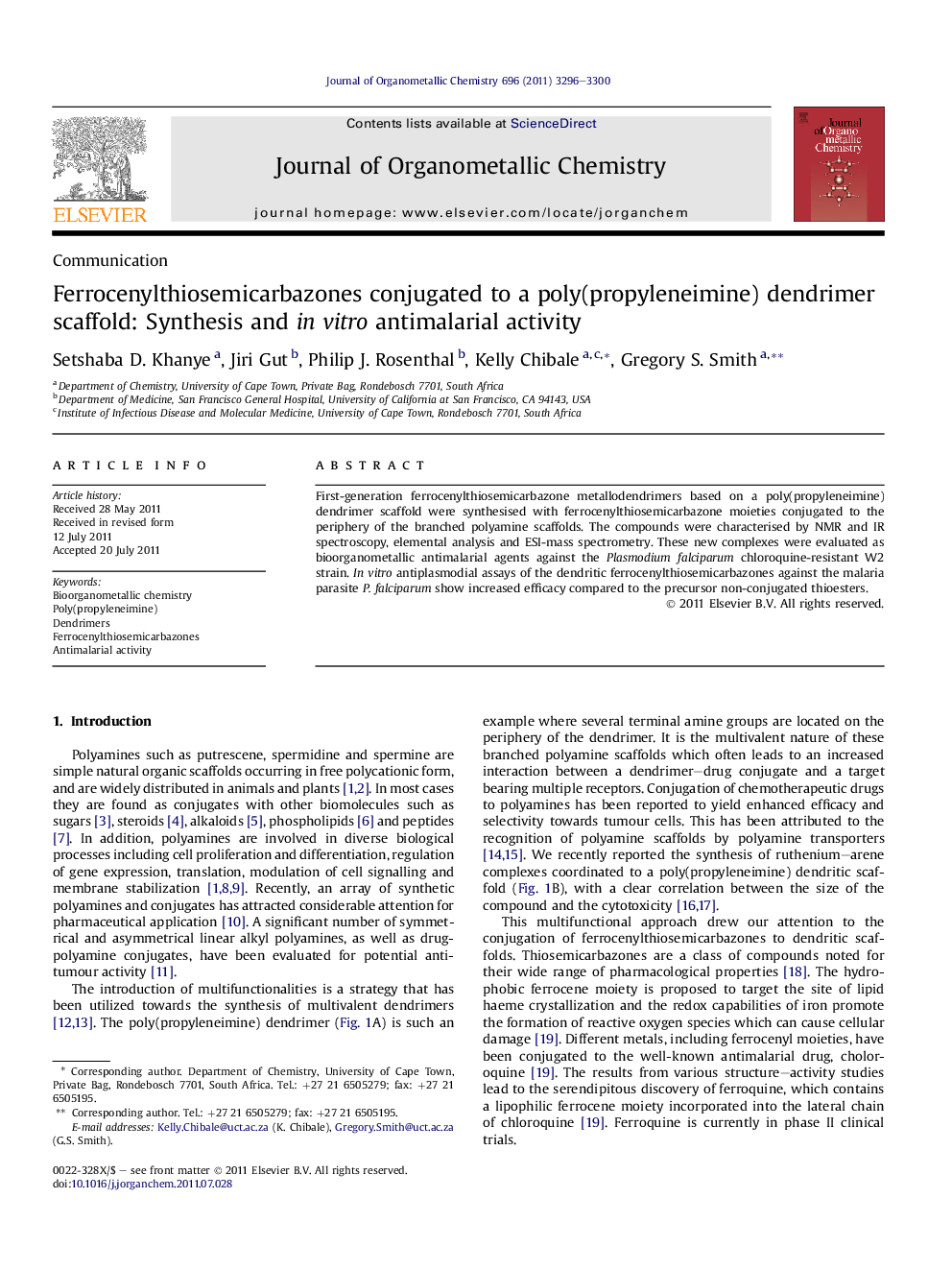| Article ID | Journal | Published Year | Pages | File Type |
|---|---|---|---|---|
| 1323703 | Journal of Organometallic Chemistry | 2011 | 5 Pages |
First-generation ferrocenylthiosemicarbazone metallodendrimers based on a poly(propyleneimine) dendrimer scaffold were synthesised with ferrocenylthiosemicarbazone moieties conjugated to the periphery of the branched polyamine scaffolds. The compounds were characterised by NMR and IR spectroscopy, elemental analysis and ESI-mass spectrometry. These new complexes were evaluated as bioorganometallic antimalarial agents against the Plasmodium falciparum chloroquine-resistant W2 strain. In vitro antiplasmodial assays of the dendritic ferrocenylthiosemicarbazones against the malaria parasite P. falciparum show increased efficacy compared to the precursor non-conjugated thioesters.
Graphical abstractFirst-generation ferrocenylthiosemicarbazone complexes based on a poly(propylene imine) dendritic scaffold were synthesised. The in vitro antimalarial studies of the tetranuclear dendritic complexes were evaluated against the Plasmodium falciparum chloroquine-resistant W2 strain.Figure optionsDownload full-size imageDownload as PowerPoint slideHighlights► Ferrocenylthiosemicarbazone dendrimers have been prepared. ► The metallodendrimers were evaluated as antimalarial drugs. ► The dendrimers show enhanced activity compared to non-conjugated thioesters.
